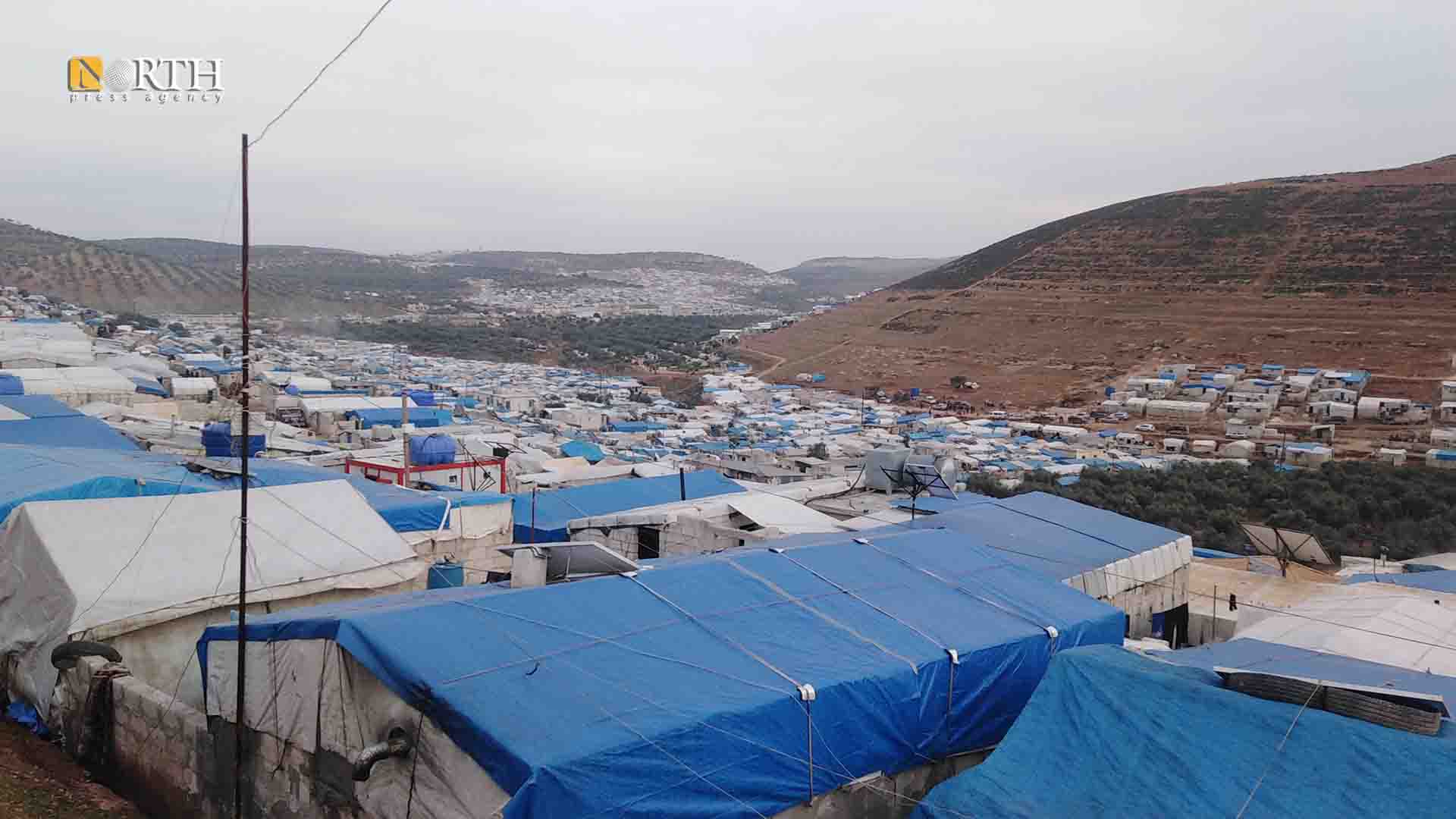IDLIB, Syria (North Press) – In the early morning, 14-year-old Youssef Ahmed leaves his tent in Golan Camp, on the Syrian-Turkish border near the town of Aqrabat, north of Idlib, for the surrounding orchards to search for dry wood amid high prices for heating oil.
“Every morning I pick up anything can be used for heating, because my family can’t buy heating oil,” Youssef told North Press.
Securing any kind of heating oil is very difficult for IDPs in Idlib’s camps due to high prices and deteriorating living conditions.
The prices of firewood increased in northern Syria, as the price of one ton of olive wood reaches 120 US dollars.
Wated Company was founded in Idlib in early 2018 by a group of Syrian businessmen living in Turkey. Later, it became a key player in Idlib, as it controls the local fuel and gas market, from oil refining to setting prices.
Wated issued the price of fuel in Turkish lira; the price of a liter of imported diesel is 4.70 Turkish lira (equivalent to 1,626 Syrian pounds) and refined diesel for four Turkish lira (1,384 SYP).
Hundreds of displaced families are resorting to using alternative materials for heating oil, although it is not safe. These materials differ from one family to another, from livestock manure and nylon to rubber and pieces of worn clothing.
Yusra Ahmad, an IDP from Kafr Zeita north of Hama who resides in the Atma camps north of Idlib, burns old shoes and clothes to warm her family of four.
A bag of worn clothes costs 3,000 SYP, according to Ahmad, who said that she could manage with one bag for four days.
A family of four suffocated to death inside their tent in Diya camp in the town of Kelli in early February due to poor heating materials.
More than ten people, including children, died last winter in the camps in northwestern Syria due to cold, burns, and suffocation, according to a statement the Syria Response Coordinators Group issued in February.
Umm Aziz, an IDP in Diya camp, said that she was using livestock manure and nylon for heating due to her inability to buy wood and heating oil.
She indicated that her children suffer from diseases all winter due to the acrid smoke emanating from the heater.
She told North Press, “I have no other choice. We will die from smoke or cold. I do not have the ability to buy diesel or wood.”
Some humanitarian organizations distributed only small quantities of heating oil to some families in the camps, leaving most of them without fuel in the harsh winter.

